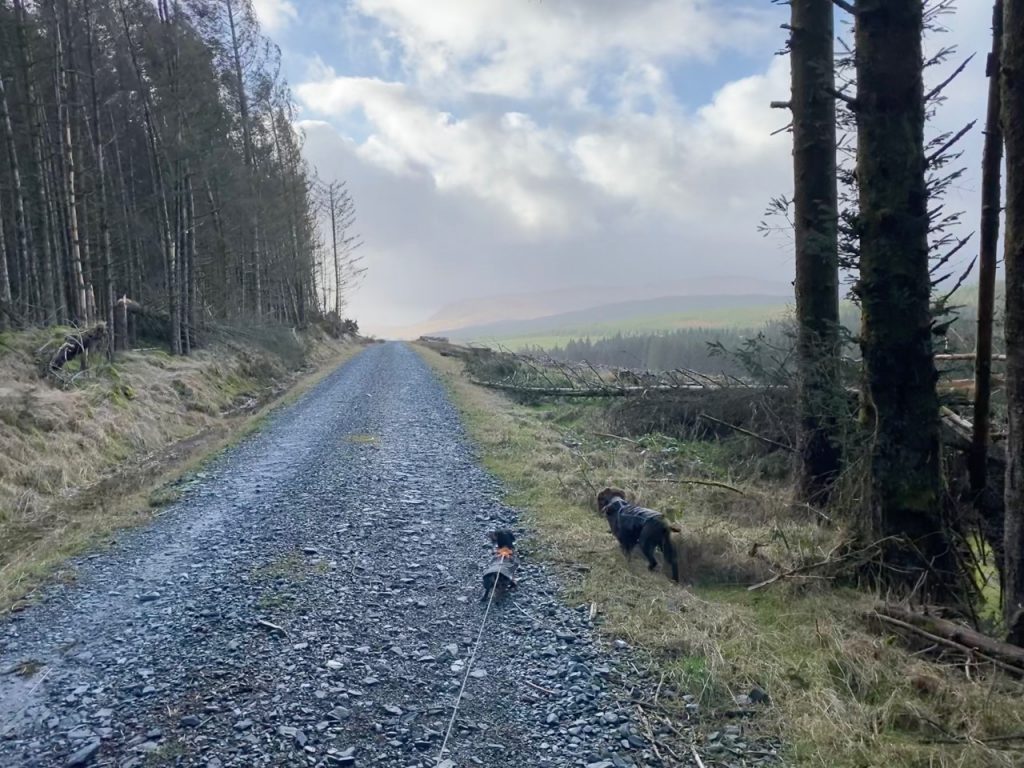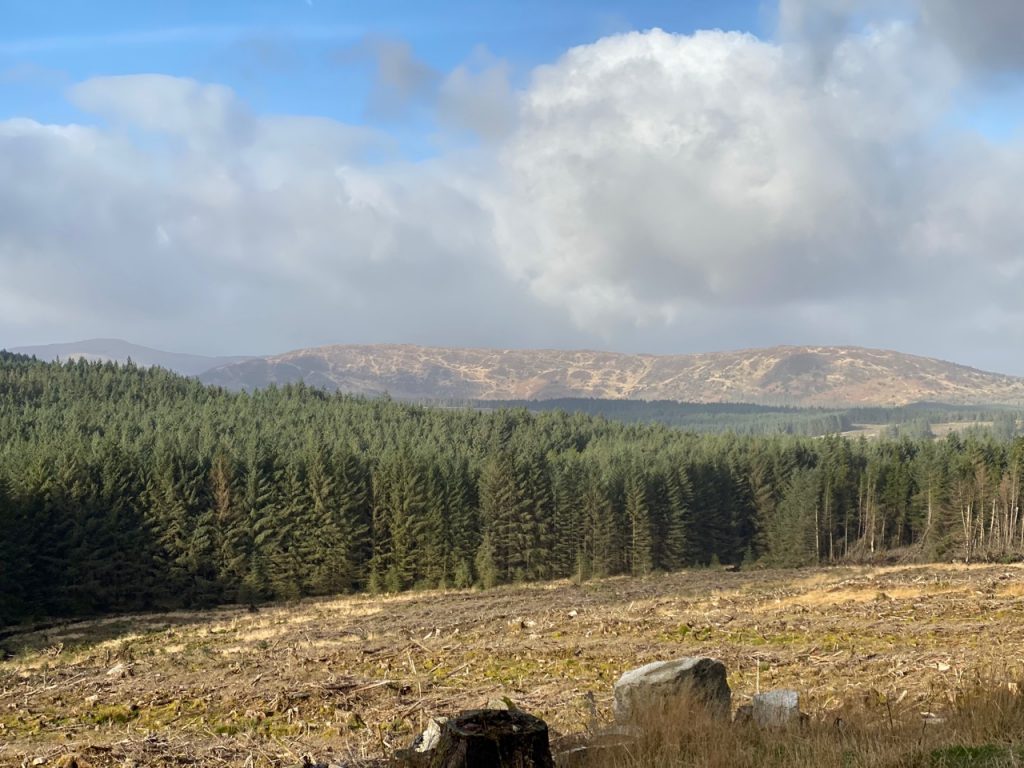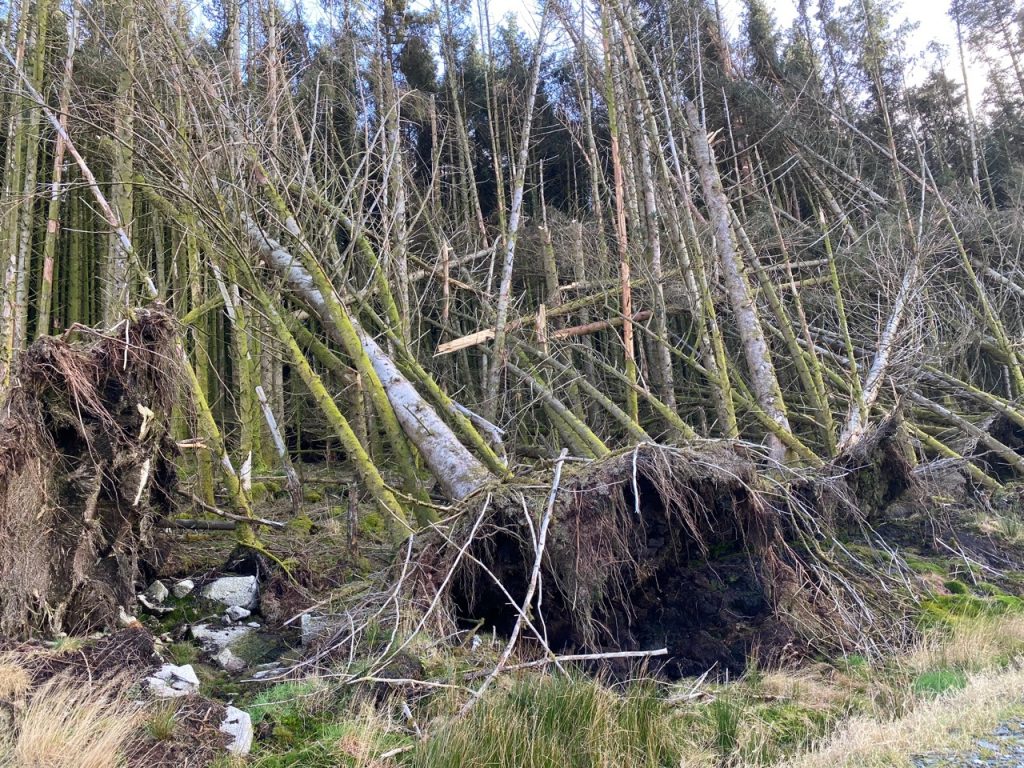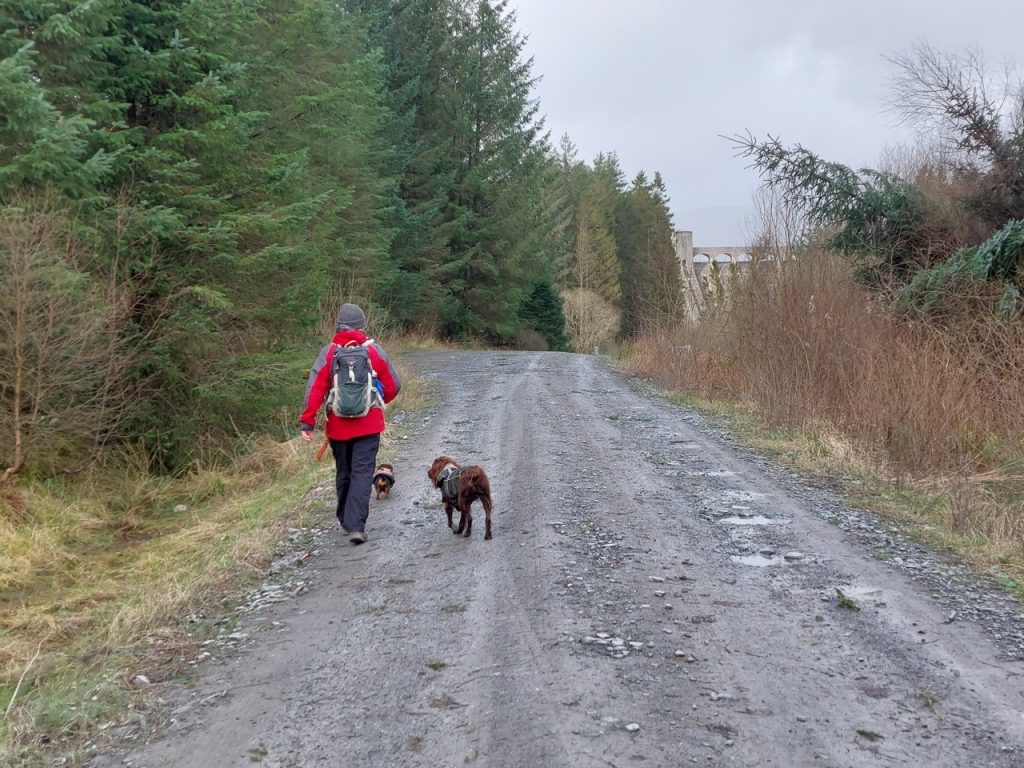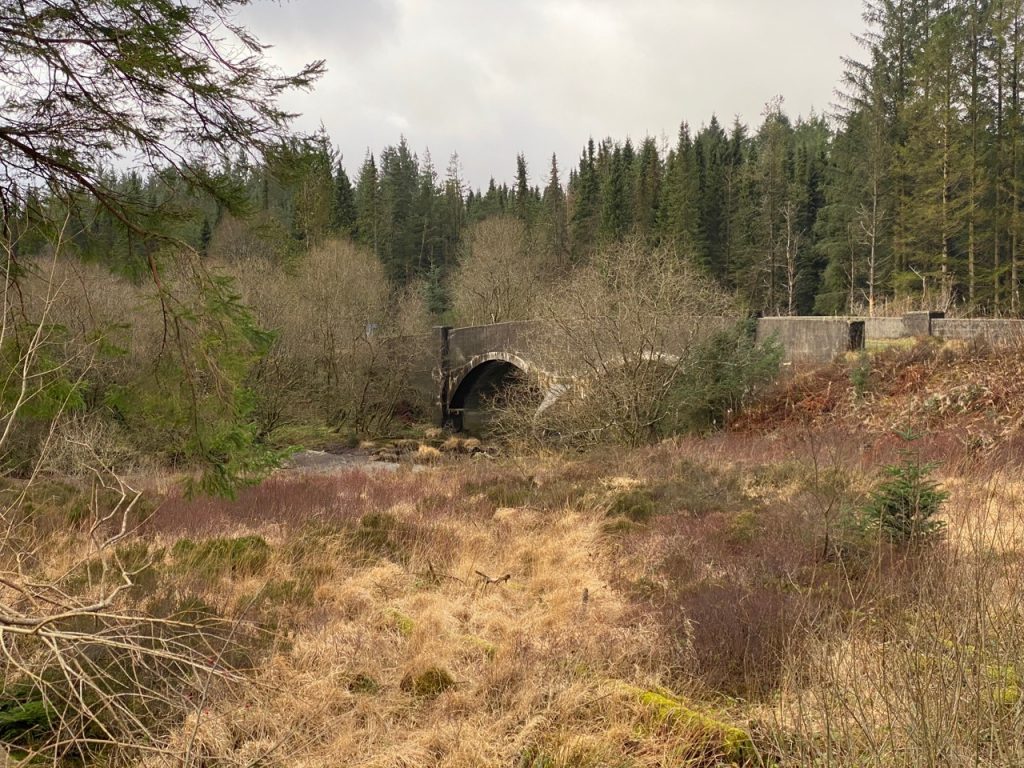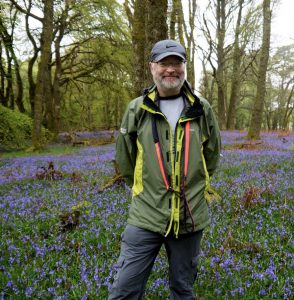9.09 miles 3h 34m ascent 230m
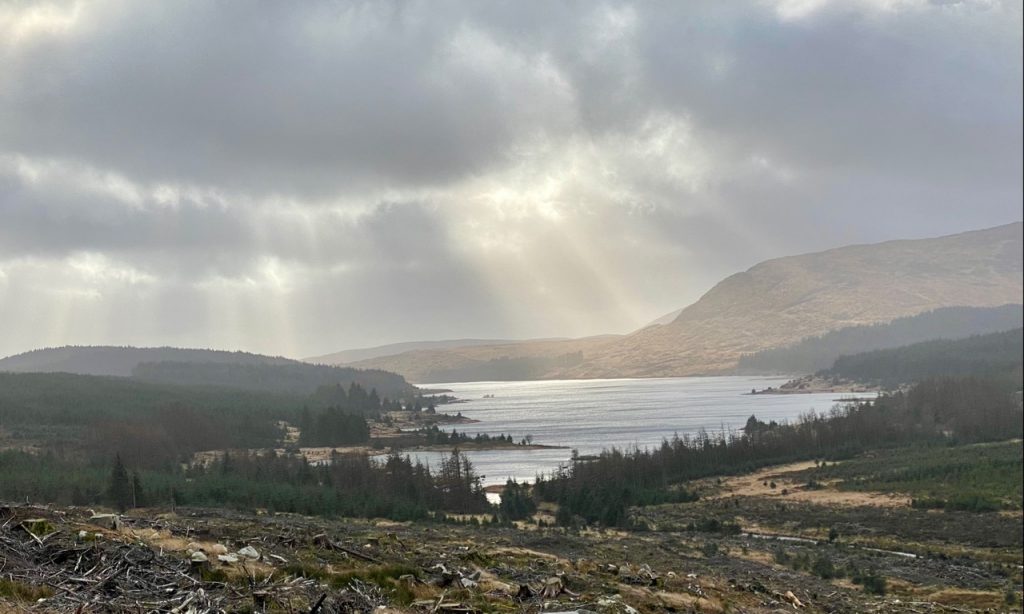
It was a windy day. The forecast had wind speeds of 40-47 mph, but I suspect we missed the worst of it. But there were fallen trees. Some had been toppled roots and all, others snapped mid trunk. The track was littered with twigs. But the wind still howled in the tree tops and we watched in amazement as wind blown trees lifted the ground opening a deep gash. It wasn’t too difficult walking, though occasional gusts would catch us at times.
We walked in typical Galloway greyness but with sunlight shining ahead of us, on Loch Grannoch, and behind us, onto Meikle Millyea. There were a great many old log stacks that look to have lain there for years, but no single logs to sit on. We did eventually find a rock beside the track beneath Craigwhinnie. We had been walking for 4.5 miles so it served well as a seat for lunch. The wind was never far away though. It snatched away Audrey’s coffee and sent my seat flying into the bog (though I was able to retrieve it with dry feet).
Our route had been from the car park at the Clatteringshaws end of the Raiders’ Road, across the newer auld brig and then along the forestry tracks used by the number 7 national cycleway. The road had climbed a little over the rise of Knocknevis passing within 200m of Loch Gower, but that was hidden in the forestry. The terrain beside the track was either mature forest, new growth, the morass of felled forest or marshy. The forest plantations were often dense with growth or with fallen trees. I can’t say there was anywhere that offered particularly inviting off track walking options. (Though I have climbed Fell of Fleet from this track). After lunch we turned about and walked back, into the wind.
You won’t find Pullaugh Glen named on a map, but the Pullaugh Burn runs through a wide valley in its short journey from Loch Grannoch to Black Water of Dee by the Queen’s Way, so it seems a good a name as any. And I don’t know how the Pullaugh Burn got its name. Its first syllable is common in the names of streams hereabouts, deriving from the Celtic pol meaning a pool, bog, mire or just water. The laugh though is lost. Perhaps it was a place of many pools pwllau, or somehow related to Kaugh Moss, across which it flows.
